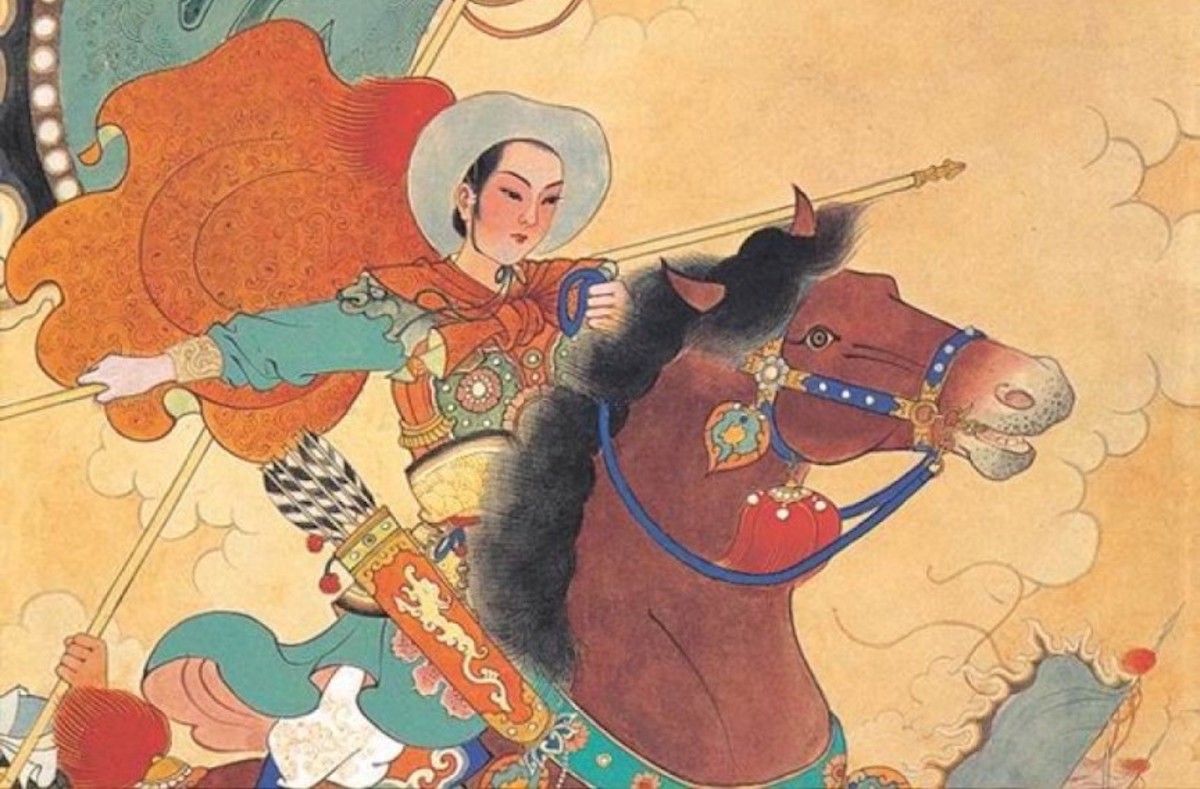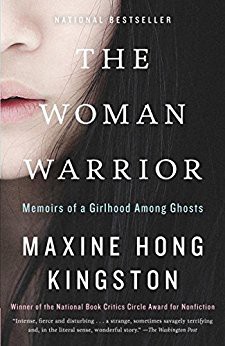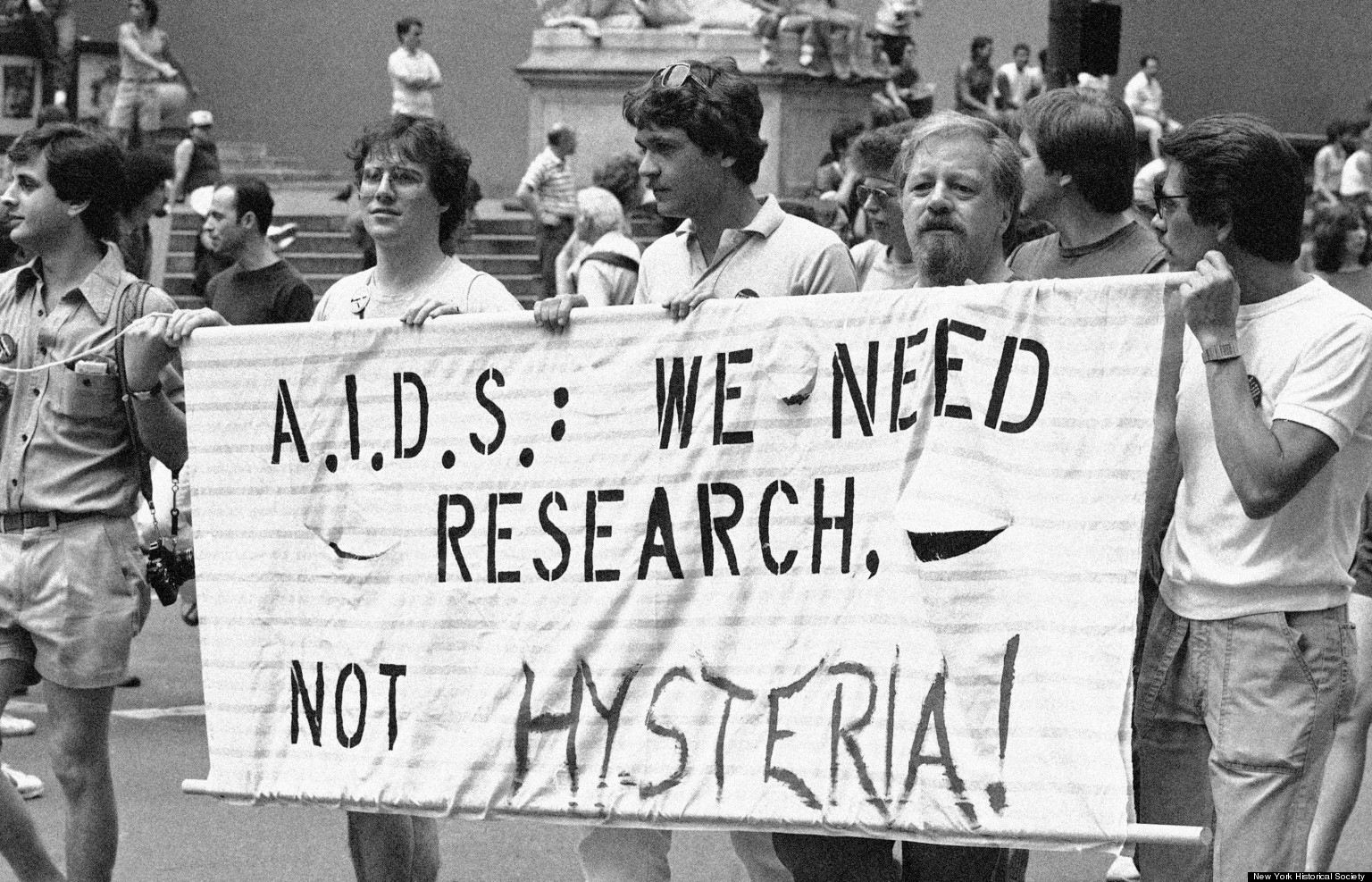essays
The Last Chinese American Woman Writer Who Hasn’t Read Maxine Hong Kingston
Why I avoided ‘The Woman Warrior’ for 26 years, and what happened when I gave in

In Late to the Party, we ask writers to read a seminal author who has somehow passed them by. You can read previous entries here.
For as long as I have known about the existence of The Woman Warrior, I have wanted to avoid reading it. When a well-meaning seventh-grade teacher recommended the book because of its Chinese themes, I smiled politely and promptly turned back to the far superior themes of His Dark Materials.
I was not interested in “Chinese themes.” Books about being Asian-American always featured parents who wanted you to go to Harvard and classmates who made fun of your food, and this was both close to life and boring. I was interested in books that had parents who were fabulously-dressed aristocrats and classmates who knew magic.
By late high school, I got over it; I read Amy Tan and Anchee Min and Adeline Yen Mah. But even then, I resisted Kingston’s 1976 memoir. I disliked folklore and disliked being told over and over that The Woman Warrior was required if you were feminist and Asian and a writer. Reading, and by extension, writing about Asian female oppression did not appeal. I wanted to be a Chinese person who wrote books that never had to mention foot-binding, not even once. I didn’t want to be constrained in my topics, yet the canon of books by Asian American women seemed to suggest that it was my duty to discuss the immigrant experience.
I worried that no matter what I wrote, I would receive responses like the one Leonard Chang received from a “legendary editor”:
The characters, especially the main character, just do not seem Asian enough. They act like everyone else. They don’t eat Korean food, they don’t speak Korean, and you have to think about ways to make these characters more “ethnic,” more different. We get too much of the minutiae of [the characters’] lives and none of the details that separate Koreans and Korean-Americans from the rest of us. For example, in the scene when she looks into the mirror, you don’t show how she sees her slanted eyes, or how she thinks of her Asianness.
And I blamed books that focused on ethnicity for setting these expectations. Avoiding Woman Warrior itself somehow felt like a way to avoid the obligations I believed it was imposing.
Still, the book is narrated by a Chinese American girl in northern California, and that was my life, too, half a century later. Maxine Hong Kingston is one of the progenitors of a legacy of literature that should be meant for me — at least, one that others say is meant for me. And, as Chinese culture teaches and as Kingston’s family notes again and again in the book, you have a duty to pay tribute to your forebears.
My family has a genealogy book that included no women until my sister and I were added. Still, our names are misspelled and there is a notation that we don’t live in the same country as everyone else. This is the exact type of story that would infuriate Kingston. It has all the elements that pervade Woman Warrior: silencing women, erasure from the family, generational differences, a gap between East and West.
Perhaps she would say the misspelling made me into a ghost like the ones that haunted her life. The subtitle of Woman Warrior is “memoirs of a girlhood among ghosts,” and indeed they are around every corner and in every section. Kingston’s book is non-linear, a complex arrangement of forms that defies genre. Legends (of the “warrior woman” Mulan and a poet captured in a barbarian raid) mix with the stories of her mother becoming a doctor in China, an aunt coming to the U.S. to confront a husband with a new wife, and Kingston’s own experiences struggling to speak up in school. Ghosts accompany all of this. Kingston writes:
Once upon a time the world was so thick with ghosts, I could hardly breathe; I could hardly walk, limping my way around the White Ghosts and their cars. There were Black Ghosts too, but they were open eyed and full of laughter, more distinct than White Ghosts.
“Ghost” doesn’t simply denote ancestors, or heroic figures, or monsters (though these are there, too). It also refers the people of everyday life. The word “ghost” becomes a title appended after a description, a word almost like “person.” Kingston describes her mother referring to “ghost teachers” and “druggist ghosts.” There are also “taxi ghosts, bus ghosts, police ghosts, fire ghosts, meter reader ghosts, tree trimming ghosts,” the Milk Ghost and the Grocery Ghosts and the Garbage Ghost. Kingston fears the Newsboy Ghost.
And here is where she loses me, because this passage shows a sloppiness with language that colors my trust in the rest of the book. Kingston calls Chinese “the language of impossible stories,” but in China, a ghost is not a ghost.
Avoiding Woman Warrior itself somehow felt like a way to avoid the obligations I believed it was imposing.
In Chinese, each one-syllable ideograph is its own word, allowing for an exquisite economy of language. When literally translated, names read as dramatic and unwieldy, like “Pavilion of Prosperity and Heavenly Peace.” Kingston’s mother is named Brave Orchid and her aunt is Moon Orchid. I am Jade Poem. My mother, Heroic Forest. But when you say our names, you register these dramatic meanings no more than you would think “defender of men” when greeting someone called Alexander. Often in Chinese, the literal meanings of the words are muted from consciousness. At one point, Kingston notes that the words for “be careful” literally mean “use a little heart.” Surprised, I translated the words back into Chinese and she was right. But xiao xin is so commonly used as “be careful” that, though Chinese is my first language, I had never before noticed this literal meaning.
This problem of translation is not easily solved, and the translation of Chinese to English often creates a word that seems more mythic and more dramatic than is truly experienced. And so it is with “ghosts.” A world of taxi ghosts and bus ghosts conjures images of superstition and fantasy — but ghosts, or guei, in this context often refers to white people. Sometimes, it’s a catch-all pejorative like “asshole.” Kingston hardly claims that the ghosts are literal, and they do sometimes represent the weight of tradition and memory. But as the playwright Frank Chin, one of Kingston’s harshest critics, has said, the lack of clarification makes the Chinese narration of the world seem more superstitious and backward than it is. Chin says that she writes for white people and plays into their negative stereotypes.
This vision of China rings familiar even 40 years after publication. It’s the one we most often see in the West. It is Chinese culture as seen through complaints, where community trumps everything and the Communists make your uncle kneel on broken glass. In China, villagers attack the home of Kingston’s aunt who committed adultery, donning masks and smashing all the food jars. In San Francisco, Kingston’s parents run a laundry and fight with their “savage” children. Her mother is brave, but also cuts Kingston’s tongue to “make her talk better.” Her father “refused to eat pastries because he didn’t want to eat the dirt the women kneaded between their fingers.”
It’s easy to see why Chin accuses Kingston of selling her culture to white people. Kingston’s China and Kingston’s America are negative, inferior. They’re the exact places I read about and decided I wanted nothing to do with.
Deciding I wanted nothing to do with this world did not let me escape it. I had no choice in the matter, just as I had no choice but to experience flashes of recognition while reading the memoir. “My American childhood was so disappointing,” Kingston writes, and of course so was mine. Her relatives compare girls to maggots and warn each other that “when fishing for treasures in the flood, be careful not to pull in girls.” I was raised by grandparents who clearly favored my male cousins simply by virtue of their sex.
While at home reading, and frowning at, Kingston’s complaints about “the secrecy of the Chinese,” I learned that my grandfather was a doctor during the Communist Revolution. He made the mistake of saying that those with skills (like, say, doctors) should be in charge. This was not very communist of him, and he was demoted to a regional hospital. He was depressed about this for 20 years. I was alive for 26 before I heard about it.
Responding to accusations of inauthenticity, Kingston says critics don’t understand that she is writing not about China, but about Chinese America. This is not a strong defense, as her descriptions of Chinese America still play into many white perceptions.
But then she asks, “Why must I ‘represent’ anyone besides myself?” Woman Warrior is a memoir, not a textbook or a polemic. The descriptions become “stereotypes” when the reader generalizes them to represent all Chinese Americans, but this is something Kingston did not intend and could not control. Instead, Kingston is writing to represent herself and an experience that was filled with oppression, confusion, unhappiness. It is the wider literary gatekeepers who took her experience and flattened it into the universal. I feared that Kingston in her choice of subject matter had set the path for Asian writers like myself, but she never wanted to be the arbiter of Chinese American life.
I feared that Kingston in her choice of subject matter had set the path for Asian writers like myself, but she never wanted to be the arbiter of Chinese American life.
Neither do I. My own literary interests tend toward speculative fiction, so I still lack the desire to write explicitly about “Chinese themes.” But in reading, and reading about, Woman Warrior, I see more clearly the way that Asian American writers lose control of their own narrative, and the ways that a lack of diversity gives people disproportionate authority against their own will. I see more clearly the forces that stupidly made me view Kingston as someone whose footsteps I had to follow, instead of just another person.
Even read on its own merits as a story of one woman’s life — released from the baggage of being the story of lives that superficially resemble mine — Kingston’s book seems distant and leaves me cold. But taken off this pedestal, the innovations and craft of The Woman Warrior become more apparent. It is a complex account of what it was like to be Kingston, writing about experiences at a time that few others did. It is the personal and not the general. It is not template, not beginning or end.









